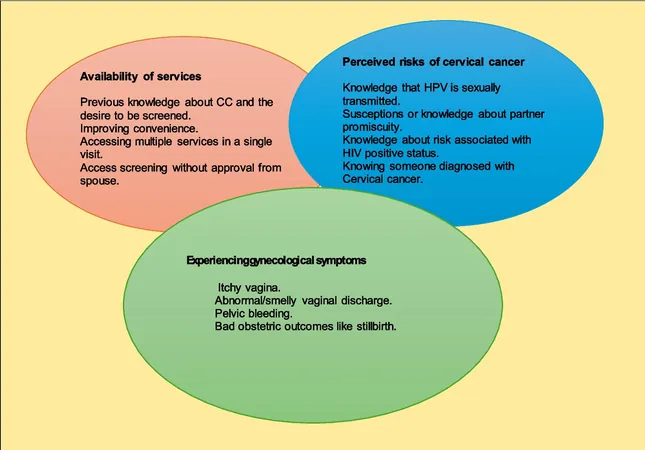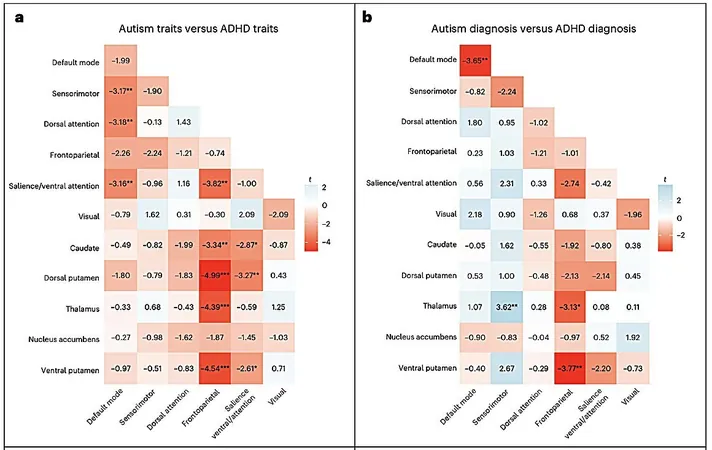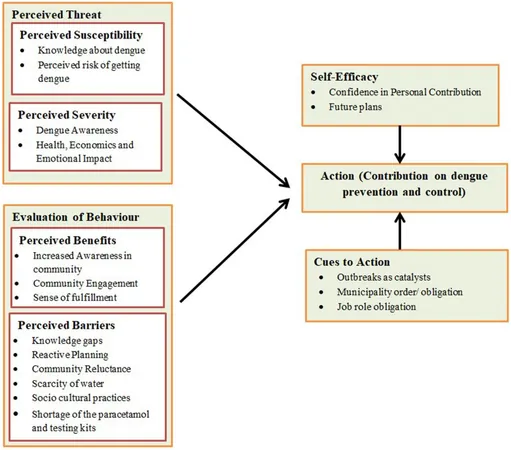
Revolutionizing Cervical Cancer Screening: How Community-Based HPV Self-Sampling is Transforming Women’s Health in Malawi
2025-05-09
Author: Wei
A Game-Changer in Cervical Cancer Screening
In a groundbreaking study conducted across 16 health facilities in Malawi, researchers are shining a light on the transformative impact of integrating HPV self-sampling with family planning services. This innovative approach is redefining how women access cervical cancer screening, with significant implications for health outcomes.
The Study Setup: Two Models Compared
The study spanned from January 2020 to December 2021 in two regions of Malawi—Lilongwe and Zomba—areas notable for high HIV prevalence. It evaluated two models: one that provided clinic-based HPV self-sampling and another that incorporated community-based self-sampling facilitated by Health Surveillance Assistants (HSAs). This community-centered model not only brought services closer to women's homes but also aimed to increase screening rates among populations less likely to visit clinics.
Women’s Perspectives: Positive Feedback and Key Insights
The mixed-methods approach encompassed in-depth interviews with 29 women aged 25 to 50 and client exit surveys with over 766 participants. Findings revealed that women who experienced community-based sampling reported significant time and cost savings. One client stated, "It’s good that they visit our homes... it’s easy for us to access health services when they come here." This highlights how community engagement can reduce barriers to healthcare access.
Creating Demand for Screening
Both models sparked increased demand for cervical cancer screening. Many women reported that discussions during family planning services prompted them to undergo screening, resulting in earlier detection and better outcomes. Women emphasized how the presence of trusted HSAs fostered a supportive environment, leading to more women seeking out these critical health services.
The Importance of Privacy in Health
Privacy emerged as a crucial factor influencing women's experiences. Those who collected samples in private settings—like their own homes—expressed comfort and satisfaction. However, some women at clinics noted that insufficient privacy could deter effective sampling, emphasizing the need for adequate facilities or structures to ensure confidentiality during healthcare interactions.
Empowering Women Through Self-Sampling
Many women felt empowered by the self-sampling process, seeing it as a way to take control of their health without needing partner approval. This empowerment is a vital step in challenging cultural norms that often restrict women’s health decisions. As one participant said, "This method allows me to collect the samples myself... I felt confident I was doing it right." This confidence in self-sampling techniques is pivotal for sustaining long-term health engagement.
High Satisfaction Rates: A Promising Trend
Remarkably, 92.5% of women surveyed reported being 'very satisfied' with their self-sampling experience. They appreciated the convenience, effectiveness, and privacy of the self-sampling kits, which also provided timely results and treatment. The study highlights that many participants would recommend this service to friends, evidencing a growing acceptability of integrated health models.
Remaining Challenges and Future Directions
Despite the overwhelmingly positive feedback, challenges remain. Some reported dissatisfaction with delayed results from clinic-based sampling, indicating a need for healthcare providers to streamline processes. Additionally, while the integration of screening services has shown promise, further outreach and education are essential to address the unique concerns of women who may hesitate to seek screening.
A Path Forward for Cervical Health in Malawi
The study underscores the significance of integrating HPV self-sampling with family planning in improving cervical cancer screening among women in Malawi. As community-based health initiatives continue to evolve, there's enormous potential to enhance women’s health outcomes, reduce barriers, and increase screening participation. As one woman wisely stated, "Cervical cancer is a very dangerous disease... we need to know our health status." This call to action echoes the urgent need for increased awareness and accessibility to health services.



 Brasil (PT)
Brasil (PT)
 Canada (EN)
Canada (EN)
 Chile (ES)
Chile (ES)
 Česko (CS)
Česko (CS)
 대한민국 (KO)
대한민국 (KO)
 España (ES)
España (ES)
 France (FR)
France (FR)
 Hong Kong (EN)
Hong Kong (EN)
 Italia (IT)
Italia (IT)
 日本 (JA)
日本 (JA)
 Magyarország (HU)
Magyarország (HU)
 Norge (NO)
Norge (NO)
 Polska (PL)
Polska (PL)
 Schweiz (DE)
Schweiz (DE)
 Singapore (EN)
Singapore (EN)
 Sverige (SV)
Sverige (SV)
 Suomi (FI)
Suomi (FI)
 Türkiye (TR)
Türkiye (TR)
 الإمارات العربية المتحدة (AR)
الإمارات العربية المتحدة (AR)